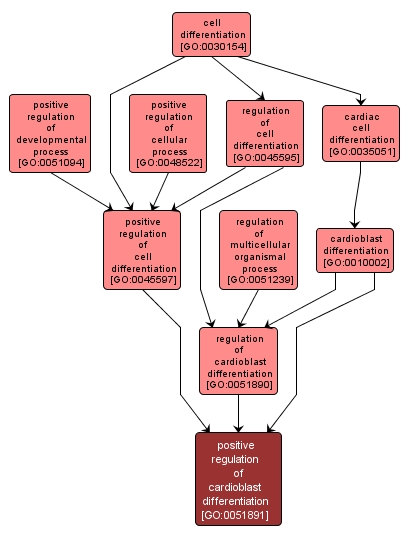| Desc: |
Any process that activates or increases the frequency, rate or extent of cardioblast differentiation, the process whereby a relatively unspecialized mesodermal cell acquires the specialized structural and/or functional features of a cardioblast. A cardioblast is a cardiac precursor cell. It is a cell that has been committed to a cardiac fate, but will undergo more cell division rather than terminally differentiating. |














